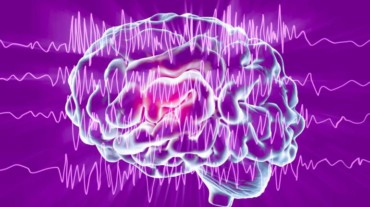
The use of medical cannabis for severe childhood epilepsy may be linked to early puberty, doctors have warned in the journal BMJ Case Reports after treating a two-year-old child with the condition.
Some previously published studies have linked cannabis use to increased levels of the male hormone testosterone, raising the question of a possible dose-related effect as higher strength preparations are readily available, the report authors point out.
Research suggests that cannabis oil may help cut the risk of seizures in childhood epilepsy. But as yet, there’s no consensus on its impact on a trio of glands, known as the hypothalamo-pituitary-gonadal (HPG) axis.

This trio is responsible for the development and regulation of several of the body systems, including those for reproduction.
The start of puberty before the age of 9 in boys, formally known as precocious puberty, is attributed to premature activation of the HPG axis. Doctors diagnosed it in a 2-year-old boy who showed signs of puberty including genital enlargement and growth of body hair.
His mother said these changes had started happening 6 months earlier, and a month after she had begun giving him cannabis oil. She had bought this online without a prescription to ease his severe epilepsy, which hadn’t responded to any other treatment.
She explained that her son had had over 20 seizures every day since birth and that these had become more frequent over time. He also had developmental delay, manifest in poor muscle tone and control, and impaired vision.
The cannabis oil had reduced the number of his daily seizures to 5, she said.
Tests revealed that the boy’s testosterone level was abnormally high as were levels of other reproductive hormones. He was treated with drugs to dampen down the activity and effects of all these hormones.
The report authors note that the research on the effectiveness of cannabis oil for reducing seizure frequency in epilepsy has mostly been done in the laboratory rather than on people.
“More research on the effects of cannabis use on human hormonal markers and clinical outcomes is necessary, and is expected as cannabis continues to become legalised in more countries,” they suggest.
Select Topics of your interest and let us customize your feed.
PERSONALISE NOW
This is just one case report, and no previous cases of early puberty associated with cannabinoid use have been reported, caution the authors.
And while there seems to be a temporal link, “It is unclear whether the precocious puberty seen in our patient is a direct result of activation of the HPG axis by [cannabis],” they emphasise.
Still, doctors should be aware of the potential hormonal consequences of cannabis use, they write.
“Until a more robust evidence base is established, clinicians should be cautious of hormonal consequences of cannabis-related products, particularly as children with brain abnormalities may be more susceptible to these effects,” they conclude.